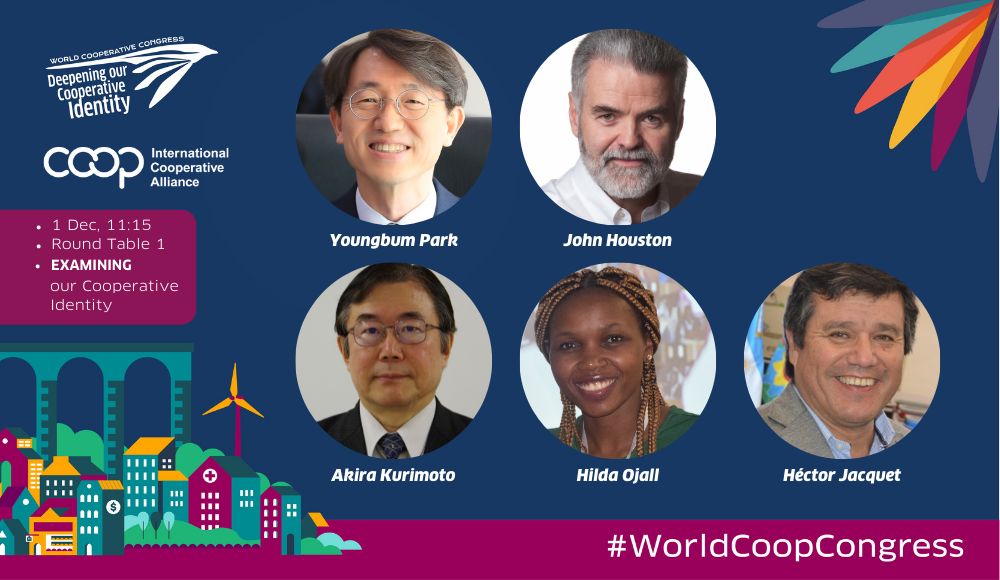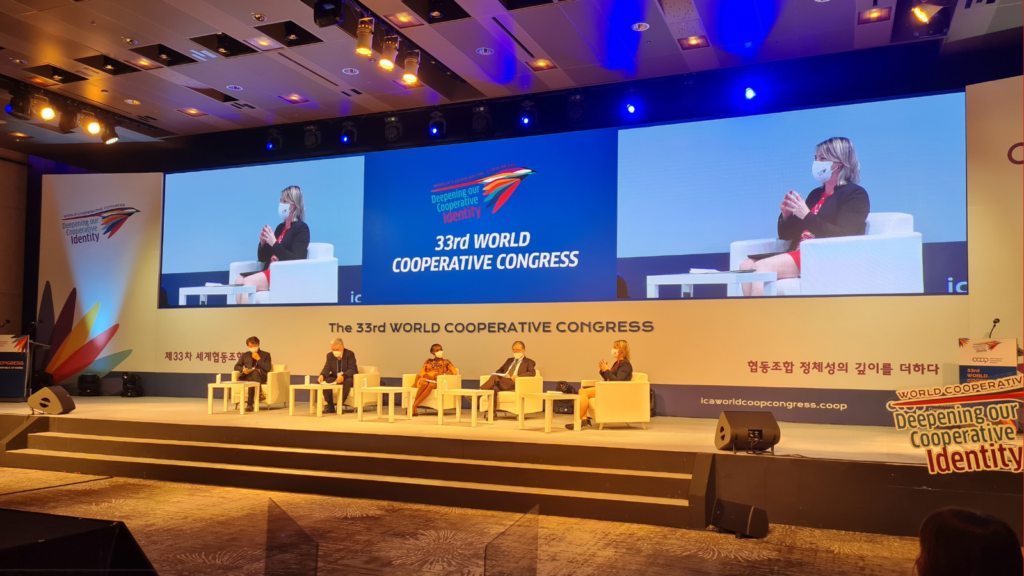
During the first round table of the World Cooperative Congress, an expert panel discussed the unique opportunities that the cooperative identity presents in meeting members’ needs and attaining expanded market share, taking the ongoing COVID-19 crisis as an opportunity.
Akira Kurimoto, Senior Fellow, Japan Co-operative Alliance, shared his experience of witnessing two earthquakes in Japan in 1997 and 2011. He explained how in both cases cooperatives raised to the challenge and provided much-needed support and relief to local communities. Today Japanese consumer cooperatives boast 30 million members.
The key lessons from these calamities are the importance of being prepared and collaborating, he said, adding: “Collaboration between cooperatives is of great importance.”
After the disaster at Fukushima, consumer cooperatives helped to remove contaminated soil from agricultural land, supporting agricultural cooperatives and their farmer members.
“The other lesson is preparedness. We cannot stop natural disasters or food poisonings. But in the case of natural disasters we can be better prepared,” he said.

Hilda Ojall, Representative of the ICA-Africa Gender Committee on the ICA-Africa Board, described growing up in a family of co-operators in Kenya and joining KUSCCO (the Voice of Savings and Credit Cooperatives) where she deals with cooperative liaison. Through KUSCCO she attended the ICA GA in Cape Town and joined the ICA Youth Network.
She called on larger, already established cooperatives to work hand in hand with new cooperatives and support them getting off the ground.
“It is a joy for me that we see young people choosing to join the co-op movement because they understand the values it brings with them.” She said that cooperatives also play an important role in addressing the needs of communities and ensuring that “the fabric of a society is made better every day.” She shared various examples of cooperatives making a difference in young people’s lives across Africa.
Film producer John Houston recalled growing up in a small Inuit community in the Canadian Arctic where his father helped locals start a printing co-op and sell crafts. Mr Houston’s film, Leaving No One Behind, traces the story of the struggle and triumph of co-ops in the Inuit and Cree communities of Nunavik (Northern Quebec).
He called for setting up an international cooperative alliance of broadcasters. “Through my broadcasting idea, cooperatives could take control of the narrative,” he said, adding that the Congress in itself was a platform for cooperatives to share knowledge.
Hector Jacquet, Cooperativa Obrera, Argentina, joined in the conversation virtually. He talked about the work of Cooperativa Obrera, a consumer’s cooperative which recently celebrated its centenary anniversary.
Young Bum Park, Vice Minister, Ministry of Agriculture, Food and Rural Affairs, Republic of Korea, described his prior involvement in the agricultural cooperative sector as a consultant. “Cooperatives need to share knowledge and have systems to implement that knowledge within their organisations through discussion and education.”
He emphasised the role of new forms of democracy, global cooperation and democratising the economy to tackle inequalities. The session is available to Congress delegates via the event’s online platform http://online.icaworldcoopcongress.coop/live .
